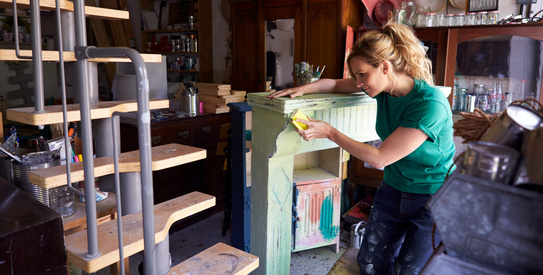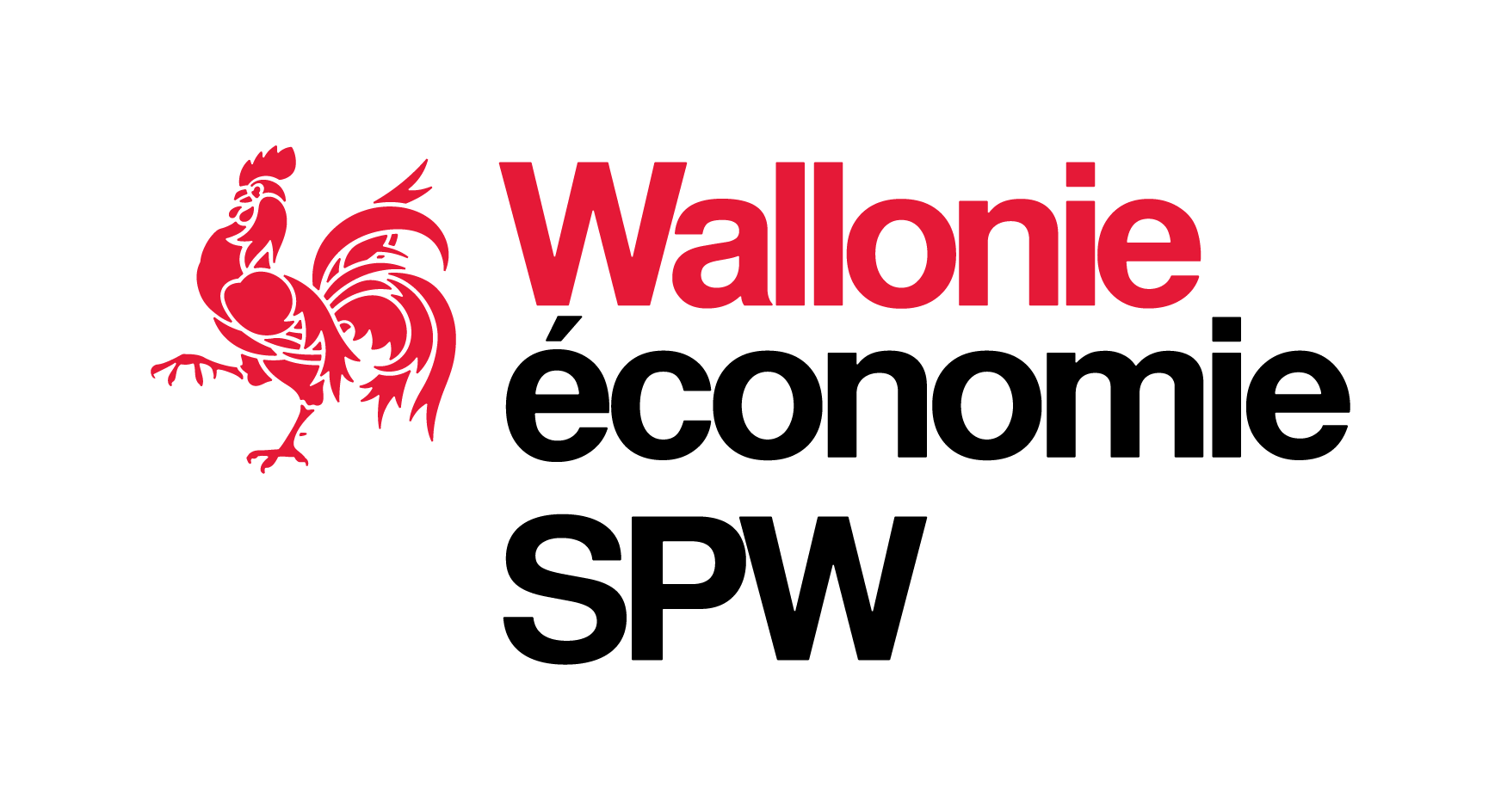Resale store
Does your company specialise in reuse or preparation for reuse? Do you run a resale store and employ low-skilled staff? You may be eligible for the "workers" grant for resale stores. This grant is designed to compensate for the loss of productivity associated with hiring workers who have not obtained the CESS (higher secondary education diploma).

What is resale store recognition?
Recognition aims to support businesses involved in the reuse and preparation for reuse of waste, products or components. Reuse is when objects or parts that are not waste are reused in the same use as when they were first used. We also talk about "second-hand". Sometimes, the item needs to be cleaned or repaired before being resold. In Wallonia, many places like Resale stores offer these services.
 Resale store recognition is issued by SPW Environment
Resale store recognition is issued by SPW Environment
Visit their website to find out more about the conditions for obtaining recognition and how to apply for it.
What does resale store recognition entitle you to?
Recognition as a resale store allows you to apply for two grants:
A grant based on the quantity of products reused
It is calculated based on the number of tons reused annually in Wallonia, by type of waste, product or component produced. This grant is managed by SPW Environment. Visit their website to find out more about the conditions and how to apply for it.
A grant for low-skilled workers
It is designed to compensate for the loss of productivity associated with hiring workers who have not obtained the CESS (higher secondary education diploma). To qualify, you must employ workers who do not have a CESS (higher secondary education diploma or equivalent) and are dependent on your resale store.
Use this formula to calculate the grant amount:
(payroll/30,000) x E
"E" is the amount of the productivity loss compensation coefficient. Currently, E = €2,000.

Conditions and procedure for applying for the "workers" grant
- Apply for the "workers" grant for recognised resource stores (reuse companies)
- Request your "social economy" certificate as an employer (Art. 60 §7 with increased subsidies)
- Request your SINE employer certificate to benefit from SINE advantages when hiring
Inspection: are you compliant ?
Inspections can be carried out at any time in the field. Their aim is to check compliance with current regulations, licensing requirements and the conditions for granting any financial aid provided by the Walloon Region and/or co-financed by European funds. These inspections aim to encourage compliance with the rules and sanction irregularities, fraud and certain forms of operation.
Inspections can be triggered in a number of situations: on the initiative of the authorities, following a complaint or report, or at the request of the Labour Prosecutor the King's Public Prosecutor.
The inspectors in charge of inspections have several powers, including conducting investigations, drawing up Pro Justitia, entering workplaces or, with authorisation, inhabited areas, checking identities, searching for, examining and copying data media, making image-based observations, conducting hearings, and seizing and sealing goods.
They can carry out these inspections unannounced, or announce them in advance. It is therefore important to always be ready to ensure that an inspection can run smoothly.
Legal framework: The work of the Inspection Services is governed by the Decree on Economic, Employment and Research Inspection, and the Decree on Vocational Training and Retraining.
How to prepare for an inspection ?
You can be inspected at any time, whether announced or unannounced. To be ready for an inspection with peace of mind, it is essential that you comply with the legislation governing your business.
The best course of action, even before an inspection is carried out, is to keep the documents proving compliance with the regulations governing your activities (licences, cards, certifications, etc.) close at hand. Inspections are based on tangible evidence, not mere declarations. It is therefore important to provide the inspector with all the documents and information requested, in full transparency.
Collaboration is essential for effective, constructive inspections. Welcome the inspector and provide give them the help they need to accomplish their mission.
What to do after the inspection ?
If the inspection went well, congratulations! Keep up the momentum to maintain your compliance. However, if you have failed to take the necessary steps, or neglected certain legal obligations, you may be subject to sanctions. Inspections may reveal irregularities or infringements, varying in seriousness from minor irregularities due to ignorance of the law to outright fraud.
Depending on the situation, the risks involved are:
- a simple warning, with the obligation to put things right,
- a proposal to withdraw or recover all or part of the subsidy, approval or authorisation,
- a statement of offences, which may result in penal or administrative sanctions.
These sanctions may have consequences for your business. It is therefore important to regularise your situation as soon as possible to avoid facing this problem.
Any questions? Any problems?
Directorate of the Social Economy
Boulevard Cauchy 43
5000 NAMUR
Are you looking for other solutions for your project?

Receive personalised advice and quickly find the answers to your questions. Find the help you need on 1890.be.
Discover other solutionsOther state aid

Innovation, training, exports, consultancy... Take a look at all the state aid available to Walloon companies.
To the Midas databaseThe social economy portal

News, training, job offers, directory, support and financing solutions... Browse the essentials of the social economy, whether you're a project leader, entrepreneur or citizen.
Go to site